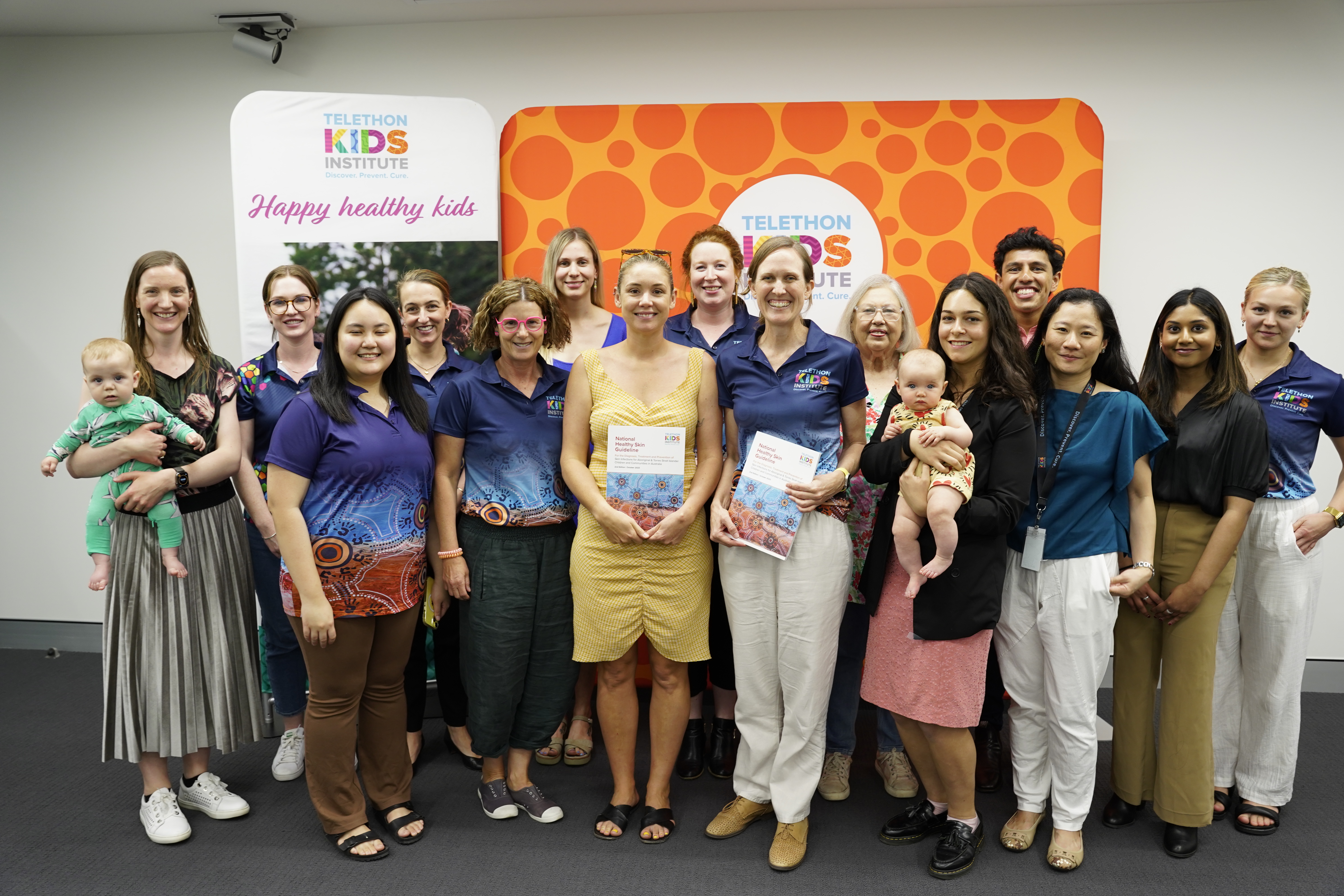Search
Showing results for "Au"

News & Events
New healthy skin guide for health sector to identify and treat skin issuesA new National Healthy Skin Guideline has been launched by The Kids Research Institute Australia, to help health care providers identify, diagnose and treat a range of skin conditions experienced by Aboriginal and Torres Strait Islander people in urban and remote areas.
Research
The interaction between respiratory viruses and pathogenic bacteriaData on asymptomatic identification rates of respiratory viruses are limited, particularly in Indigenous populations, who suffer a high burden of OM.
Research
Oral health care and service utilisation in individuals with Rett syndrome: an international cross-sectional studyThere is a dearth of literature available on the comparative oral health status of those with Rett syndrome (RTT) despite diurnal bruxism being a supportive diagnostic criterion for the disorder. This study was designed to investigate the dental experiences of individuals with RTT in terms of perceived at-home and professional dental care.
Research
Associations Between Developmental Risk Profiles, Mental Disorders, and Student Absences Among Primary and Secondary Students in AustraliaThis study assessed if the association between mental disorders and higher student absences varies across different profiles of risk factors, and estimated the proportion of student absences associated with mental disorders. Data included responses from a nationally representative Australian survey of child and adolescent mental health.
Research
Biogeography of the Relationship between the Child Gut Microbiome and Innate Immune SystemThe gut microbiome is a well-recognized modulator of host immunity, and its compositions differ between geographically separated human populations. Systemic innate immune responses to microbial derivatives also differ between geographically distinct human populations. However, the potential role of the microbiome in mediating geographically varied immune responses is unexplored. We here applied 16S amplicon sequencing to profile the stool microbiome and, in parallel, measured whole-blood innate immune cytokine responses to several pattern recognition receptor (PRR) agonists among 2-year-old children across biogeographically diverse settings. Microbiomes differed mainly between high- and low-resource environments and were not strongly associated with other demographic factors. We found strong correlations between responses to Toll-like receptor 2 (TLR2) and relative abundances of Bacteroides and Prevotella populations, shared among Canadian and Ecuadorean children.
Research
Not in employment, education or training (NEET); more than a youth policy issueAustralians who are Not in Employment, Education or Training (NEET) and receive income support span a wide spectrum of working ages. Australian research has concentrated on NEETs aged 15-29 years, in line with international standards. This paper investigates extending the NEET concept to include all working age persons 15-64 years and the value added to welfare policy through analysis of a new linked dataset.
Research
In Vitro primary human airway epithelial whole exhaust exposureThe method outlined in this article is a customization of the whole exhaust exposure method generated by Mullins et al. (2016) using reprogrammed primary human airway epithelial cells as described by Martinovich et al. (2017). It has been used successfully to generate recently published data (Landwehr et al. 2021). The goal was to generate an exhaust exposure model where exhaust is collected from a modern engine, real-world exhaust concentrations are used and relevant tissues exposed to assess the effects of multiple biodiesel exposures.
Research
An Unusual Resurgence of Human Metapneumovirus in Western Australia Following the Reduction of Non-Pharmaceutical Interventions to Prevent SARS-CoV-2 TransmissionNon-pharmaceutical interventions (NPIs) to reduce SARS-CoV-2 transmission disrupted respiratory virus seasonality. We examined the unusual return of human metapneumovirus (hMPV) in Western Australia following a period of absence in 2020.
Research
Rett Syndrome Behaviour Questionnaire in Children and Adults With Rett Syndrome: Psychometric Characterization and Revised Factor StructureRett syndrome (RTT) is a severe neurodevelopmental disorder associated with multiple neurobehavioral abnormalities. The Rett Syndrome Behaviour Questionnaire (RSBQ) was developed for pediatric RTT observational studies. Because its application has expanded to adult and interventional studies, we evaluated the RSBQ's psychometric properties in six pediatric (n = 323) and five adult (n = 309) datasets.
Research
Risk factors for poorer respiratory outcomes in adolescents and young adults born pretermThe respiratory outcomes for adult survivors of preterm birth in the postsurfactant era are wide-ranging with prognostic factors, especially those encountered after the neonatal period, poorly understood.
